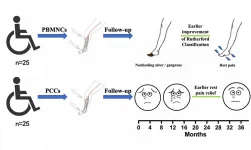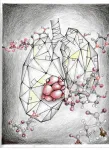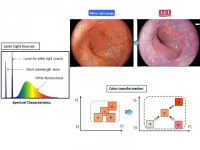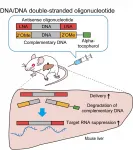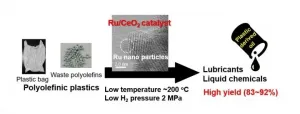(Press-News.org) Durham, NC - Mid-term results of the first clinical trial designed specifically to evaluate the safety and effectiveness of two cell therapies that are showing early promise in treating angiitis-induced critical limb ischemia were released today in STEM CELLS Translational Medicine. The study, by researchers at Zhongshan Hospital/Fudan University in Shanghai, compared how transplantation of peripheral blood mononuclear cells fared versus transplantation of purified CD34+ cells in treating this condition.
It revealed both therapies yielded satisfactory results and provided evidence for more precise application of cell therapy under different conditions, the researchers say.
Critical limb ischemia (CLI) is a type of peripheral artery disease caused by severe blockage in the arteries of the lower extremities, which markedly reduces blood-flow. Angiitis-induced CLI (AICLI) occurs when the CLI is the result of inflammation of the walls of small blood vessels. This chronic condition results in severe pain in the feet or toes, even while resting. Left untreated, the complications of CLI often result in amputation.
"Cell transplantation, such as purified CD34+ cells (PCCs), which are multipotent hematopoietic stem cells, and peripheral blood mononuclear cells (PBMNCs), which are a mixture of highly specialized immune cells including T cells, NK cells and more, is gradually being used as a promising treatment for AICLI," explained Zhihui Dong, M.D, who along with Weiguo Fu, M.D, led the investigation. "The aim of our trial was to compare the mid-term safety and efficacy between the two groups and determine their respective advantages."
From April 2014 to September 2019, 50 AICLI patients were equally allocated to the two treatment groups. At the 36-month follow-up, 47 patients remained. The endpoints assessed were major amputation-free survival and total amputation-free survival. At six months after treatment these had been 96 percent and 84 percent in the PBMNCs group, and 96 percent and 72 percent in the PCCs group, respectively - rates that remained stable at the 12- and 24-month periods, too. The mid-term trial period focused on in this report - 36 months - once again confirmed stability.
"The PCCs group had a significant higher probability of earlier rest pain relief than the PBMNCs group, while earlier significant improvements in the Rutherford classification (which describes seven stages of peripheral artery disease) were observed in the PBMNCs group. Accordingly, PCCs would be preferred for patients with significant pain, while PBMNCs may be a good option for patients with two or more critically ischemic limbs," Dr. Fu noted.
Additionally the study compared the therapies' cost effectiveness and found that PCCs treatment was less cost-effective compared to PBMNCs treatment, mainly due to the extra cost of the purification process. "This finding is interesting and useful for future clinical trials in which we could consider avoiding purifying PBMNC into PCCs, thus reducing the cost of trials," Dr. Dong said. "The next step should be to verify our outcomes in long-term trials involving larger numbers of patients."
"The outcomes provided in this study of two cell therapies for the treatment AICLI show both to be effective and safe," said Anthony Atala, MD, Editor-in-Chief of STEM CELLS Translational Medicine and director of the Wake Forest Institute for Regenerative Medicine. "This finding is promising and useful for the planning of future clinical trials."
INFORMATION:
The full article, "Three-year outcomes of PBMNCs versus PCCs in the treatment of angiitis-induced no-option critical limb ischemia and a cost-effectiveness assessment," can be accessed at https://stemcellsjournals.onlinelibrary.wiley.com/doi/abs/10.1002/sctm.20-0033.
About STEM CELLS Translational Medicine: STEM CELLS Translational Medicine (SCTM), co-published by AlphaMed Press and Wiley, is a monthly peer-reviewed publication dedicated to significantly advancing the clinical utilization of stem cell molecular and cellular biology. By bridging stem cell research and clinical trials, SCTM will help move applications of these critical investigations closer to accepted best practices. SCTM is the official journal partner of Regenerative Medicine Foundation.
About AlphaMed Press: Established in 1983, AlphaMed Press with offices in Durham, NC, San Francisco, CA, and Belfast, Northern Ireland, publishes two other internationally renowned peer-reviewed journals: STEM CELLS® (http://www.StemCells.com), celebrating its 39th year, is the world's first journal devoted to this fast paced field of research. The Oncologist® (http://www.TheOncologist.com), also a monthly peer-reviewed publication, entering its 26th year, is devoted to community and hospital-based oncologists and physicians entrusted with cancer patient care. All three journals are premier periodicals with globally recognized editorial boards dedicated to advancing knowledge and education in their focused disciplines.
About Wiley: Wiley, a global company, helps people and organizations develop the skills and knowledge they need to succeed. Our online scientific, technical, medical and scholarly journals, combined with our digital learning, assessment and certification solutions, help universities, learned societies, businesses, governments and individuals increase the academic and professional impact of their work. For more than 200 years, we have delivered consistent performance to our stakeholders. The company's website can be accessed at http://www.wiley.com.
About Regenerative Medicine Foundation (RMF): The non-profit Regenerative Medicine Foundation fosters strategic collaborations to accelerate the development of regenerative medicine to improve health and deliver cures. RMF pursues its mission by producing its flagship World Stem Cell Summit, honouring leaders through the Stem Cell and Regenerative Medicine Action Awards, and promoting educational initiatives.
DALLAS - Jan. 5, 2021 - Researchers at the Children's Medical Center Research Institute at UT Southwestern (CRI) have discovered a new metabolic vulnerability in a highly aggressive form of non-small cell lung cancer (NSCLC). These findings could pave the way for new treatments for patients with mutations in two key genes - KRAS and LKB1. Patients whose tumors contain both of these mutations, known as KL tumors, have poor outcomes and usually do not respond to immunotherapy.
"We used to think that most tumors rely on the same handful of metabolic pathways to grow, but we've learned over the last decade that this is an oversimplification. Instead, different tumor subclasses have particular metabolic needs arising from mutations ...
Trio of articles suggest that a single dose of vaccine, even if less effective than two doses, may have greater population benefit.
Three articles published today in Annals of Internal Medicine discuss the most effective vaccination strategy for maximum impact against the COVID-19 pandemic. The articles are accompanied by an editorial from Thomas J. Bollyky, JD, Director of Global Health Program, Council on Foreign Relations. Mr. Bollyky can be reached through Lauran Potter at lpotter@cfr.org. The full text of his editorial is available here: https://www.acpjournals.org/doi/10.7326/M20-8280.
Speed Versus Efficacy: Quantifying Potential Tradeoffs in COVID-19 Vaccine Deployment https://www.acpjournals.org/doi/10.7326/M20-7866.
Researchers from Yale School of Public ...
The combination of ibrutinib plus rituximab is approved for the treatment of adults with previously untreated chronic lymphocytic leukaemia (CLL). In an early benefit assessment, the German Institute for Quality and Efficiency in Health Care (IQWiG) now examined which advantages and disadvantages this drug combination has for the patients. For patients who could also be treated with the chemo-immunotherapy FCR, the assessment found an indication of a major added benefit in comparison with this appropriate comparator therapy. No study data are available for patients for whom FCR or other chemo-immunotherapy is not an option due to their poorer general health. An added benefit is therefore ...
PULLMAN, Wash. - In what may be a sign of climate-change-induced conflict, researchers have captured rare photographic evidence of a jaguar killing another predatory wild cat at an isolated waterhole in Guatemala.
In the footage, a male jaguar arrives near the waterhole and apparently lies in wait for an hour. It lets a potentially dangerous prey animal, a large tapir, pass by, but when the ocelot stops to drink, the jaguar pounces and carries off the smaller predator.
The event, detailed in a recent study published in the journal Biotropica, was captured in the Maya Biosphere Reserve in March 2019, a dry month in a drought year for the tropical forest, by wildlife ecologists from Washington State University ...
LA JOLLA--(January 5, 2021) Lithium is considered the gold standard for treating bipolar disorder (BD), but nearly 70 percent of people with BD don't respond to it. This leaves them at risk for debilitating, potentially life-threatening mood swings. Researchers at the Salk Institute have found that the culprit may lie in gene activity--or lack of it.
A new study led by Salk Professor and President Rusty Gage, which published in the journal Molecular Psychiatry on January 4, 2021, shows that decreased activation of a gene called LEF1 disrupts ordinary ...
Researchers from Tokyo Medical and Dental University (TMDU) describe an endoscopic modality for detecting upper gastrointestinal tract neoplasms by Linked Color Imaging that innovatively mixes light of different wavelengths to better depict mucosal changes
Tokyo, Japan - Recently there have been significant advances on several fronts in the ongoing war against cancer of the alimentary tract. Now, Japanese researchers report the development of another weapon: Linked Color Imaging (LCI), a novel endoscopic technique that improves detection of cancer by viewing the upper digestive tract mucosa under illumination that combines specific wavelengths of light to intensify subtle color variations indicative of neoplastic change.
Upper gastrointestinal (GI) endoscopy ...
Researchers from Tokyo Medical and Dental University (TMDU) and Ionis Pharmaceuticals, USA, report a modification wherein replacing the RNA strand of a heteroduplex oligonucleotide with DNA may enhance the efficacy of antisense oligonucleotide-based drugs
Tokyo, Japan - Antisense oligonucleotides (ASO) hold great promise for pharmacotherapy. Now, researchers at Tokyo Medical and Dental University (TMDU) and Ionis Pharmaceuticals, advancing their earlier work on a heteroduplex oligonucleotide (HDO) model, have demonstrated augmentation of ASO-based ...
For the first time, researchers have used a novel catalyst process to recycle a type of plastic found in everything from grocery bags and food packaging to toys and electronics into liquid fuels and wax.
The team published their results on Dec. 10 in Applied Catalysis B: Environmental.
"Plastics are essential materials for our life because they bring safety and hygiene to our society," said paper co-authors Masazumi Tamura, associate professor in the Research Center for Artificial Photosynthesis in the Advanced Research Institute for Natural Science and Technology in Osaka City University, and Keiichi Tomishige, professor in the Graduate School of Engineering in Tohoku University. "However, the growth of the global ...
An imbalance of the body's oxygen producing free radicals and its antioxidant cells could be the reason why gum disease and chronic kidney disease affect each other, a new study led by the University of Birmingham has found.
Periodontitis - or gum disease - is a common, inflammatory disease which causes bleeding gums, wobbly or drifting teeth and can eventually result in tooth loss.
Previous studies have shown a link between the severe oral inflammation caused by gum disease and chronic kidney disease (CKD) which demonstrated that those with worse inflammation of the gums have worse kidney function.
Previous research also showed that patients with CKD and periodontitis experience ...
Practicing gratitude and looking to the future will help safeguard our mental wellbeing during Covid-19 lockdowns, a new study in the Journal of Positive Psychology reports.
In the first study of its kind, researchers from the University of Surrey investigated the effectiveness of three psychological interventions -- nostalgia, a sentimentality for the past; gratitude, recognising the good things currently in our life; and best possible self, thinking about positive elements of the future -- and how they each affect wellbeing during lockdowns.
Personal characteristics such as emotion regulation (the ability to respond ...
